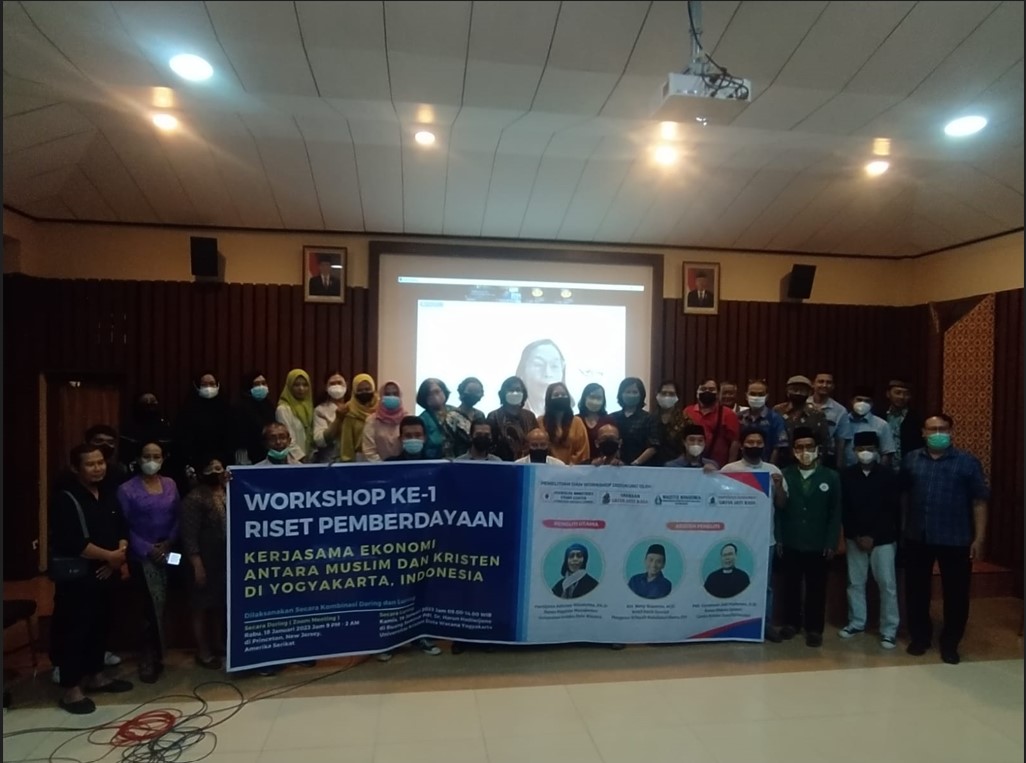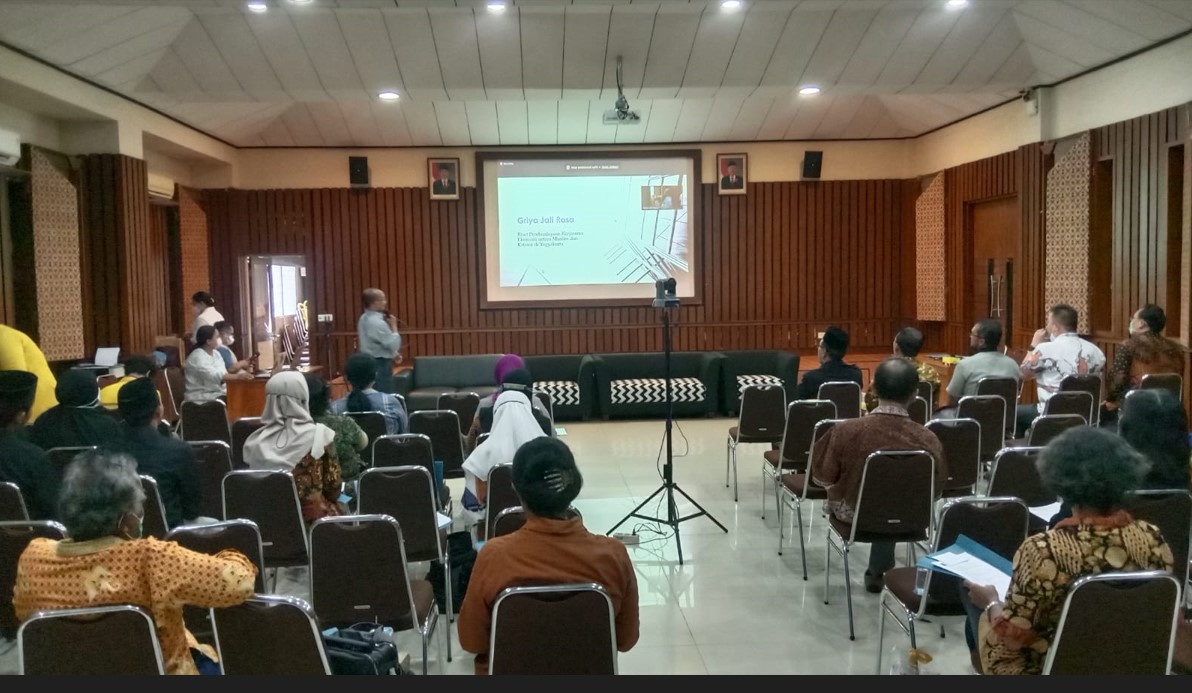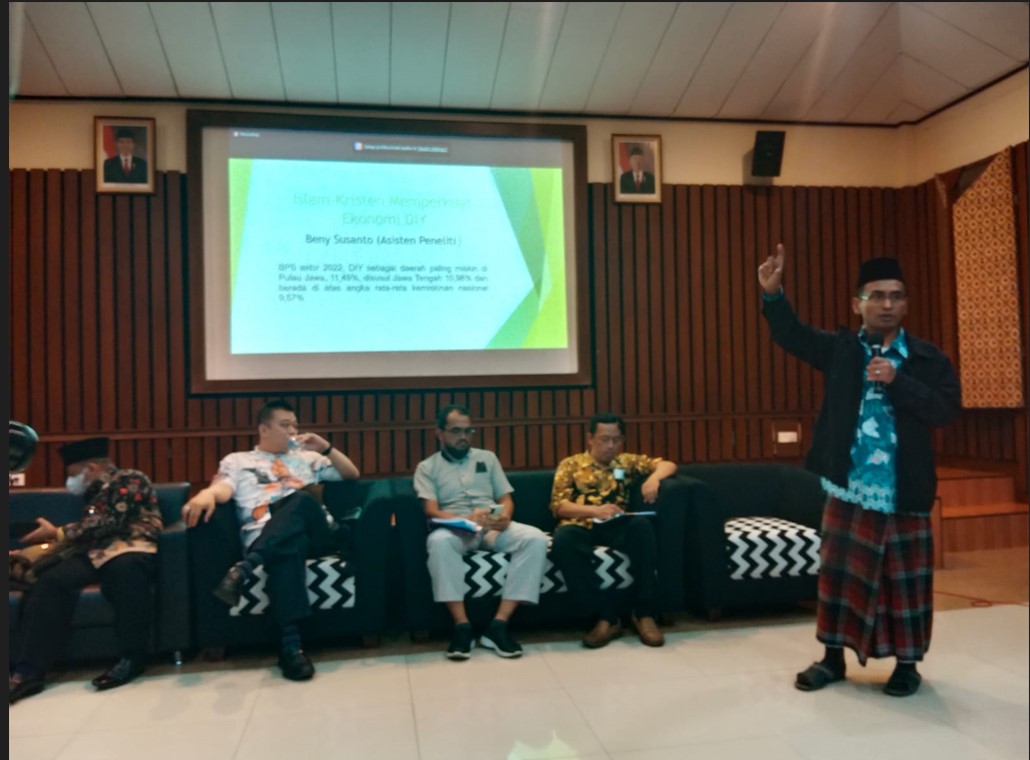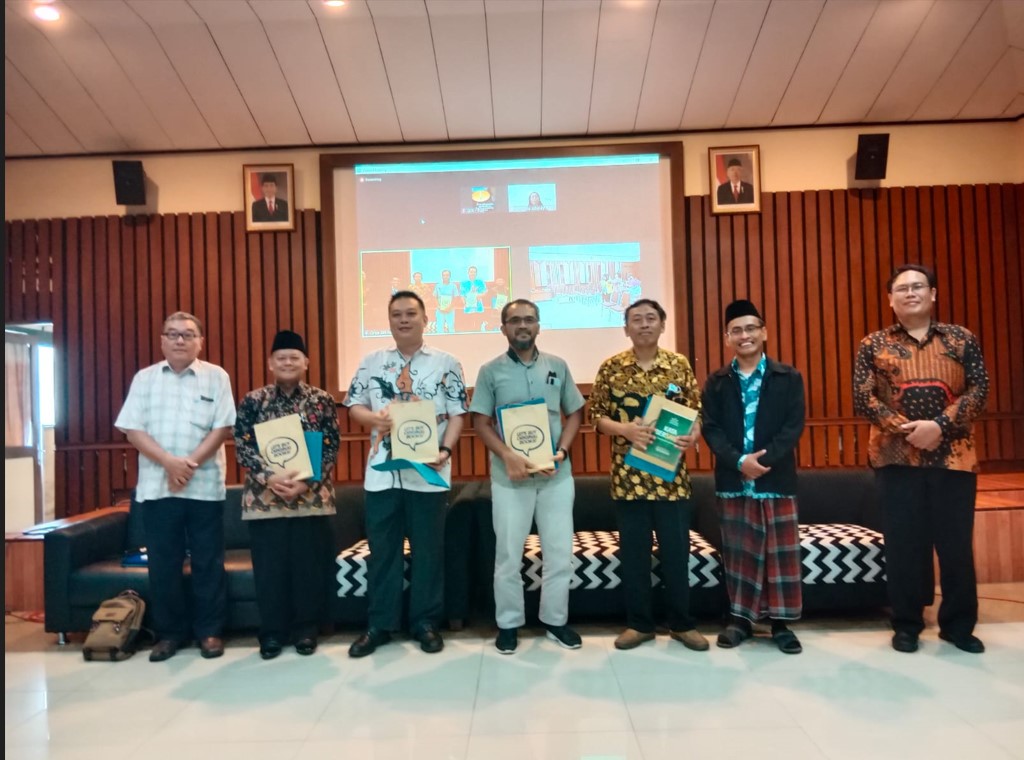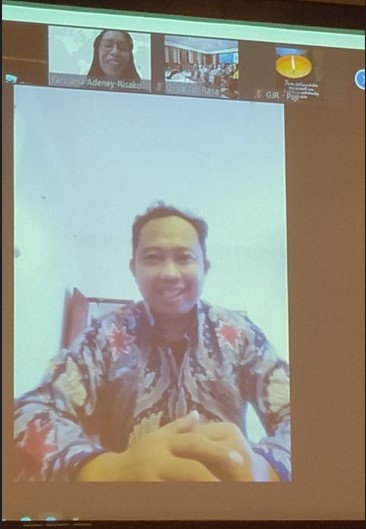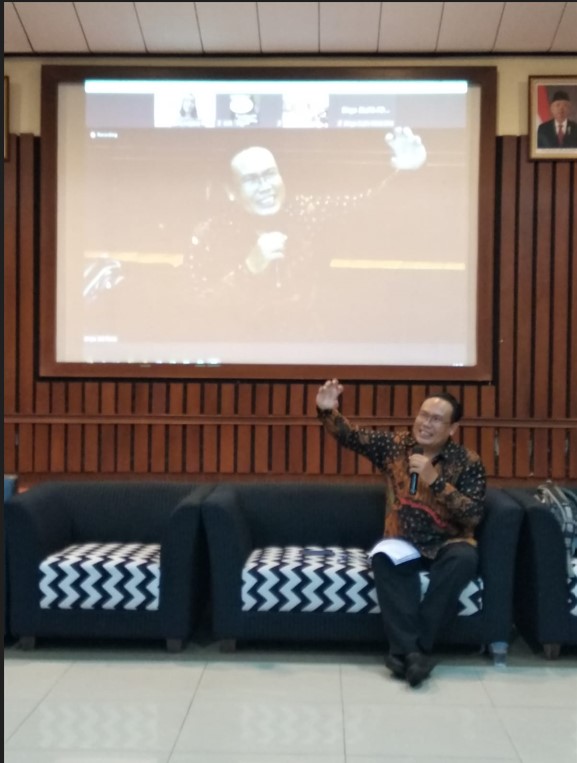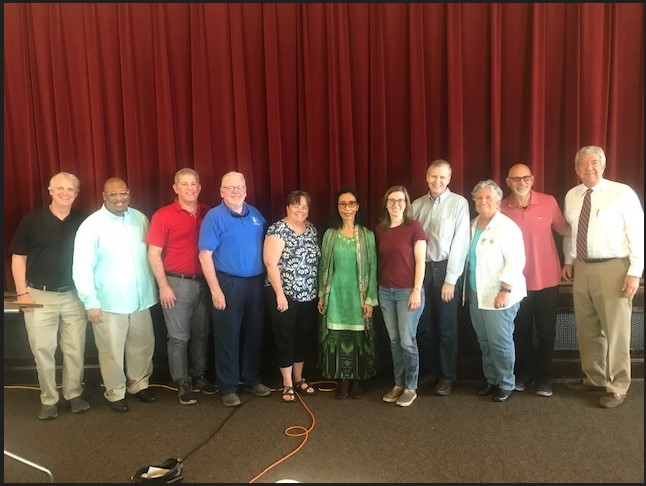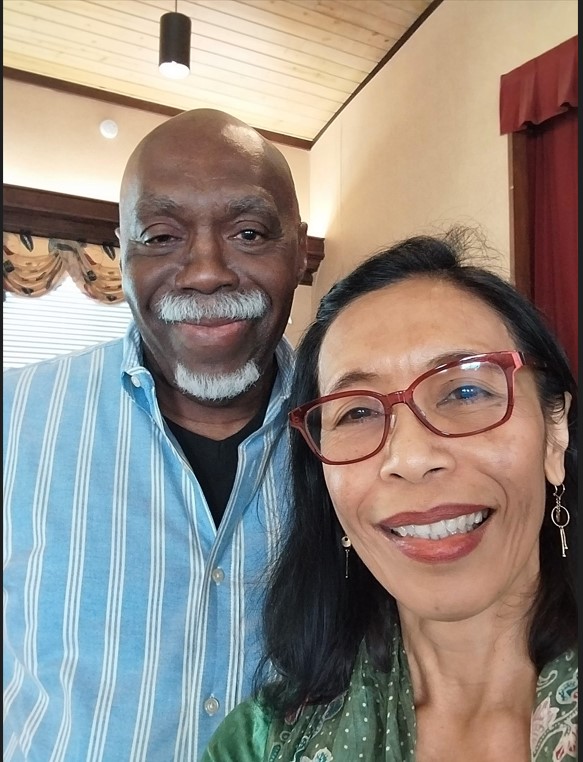A Letter from Farsijana Adeney-Risakotta, serving in Indonesia
Spring 2023
Write to Farsijana Adeney-Risakotta
Individuals: Give online to E132192 in honor of Farsijana Adeney-Risakotta’s ministry
Congregations: Give to D500115 in honor of Farsijana Adeney-Risakotta’s ministry
Churches are asked to send donations through your congregation’s normal receiving site (this is usually your presbytery)
Subscribe to my co-worker letters
Dear friends, colleagues and families,
On the day of blessing, Ash Wednesday (February 23), in Yogyakarta, Indonesia, the House of Authentic Sense (HAS) Co-op held its second workshop on research for empowering economic partnership between Muslims and Christians in Indonesia. The first workshop was conducted on January 17. Can you guess what time it was in Princeton when I participated via Zoom? 12 hours later than Indonesian time! I had to wake up and sit in front of the computer from 9 p.m. until 3 a.m. on Ash Wednesday morning.
One may ask, what is the relationship between economics and faith? In discussions with a Christian scholar, I asked why the church didn’t think about the economics of the congregation unless it connects to the weekly offering. While quoting from the verse about Jesus turning over the tables in the temple of God (Matthew 21:12-16), the pastor said the church does not engage in business.
Pastor Gunawan Adi Prabowo, the senior pastor at Sarimulya Javanese Christian Church in Yogyakarta, invited members of his congregation with entrepreneurial backgrounds to participate in two workshops. Also, Ustad Beny Susanto, an Islamic scholar and Deputy Head of the regional office of Nahdlatul Ulama of Yogyakarta invited entrepreneurial Muslim participants. Pastor Gunawan and Ustad Beny are empowerment research assistants with whom we facilitated the workshops. Other participants were members of Co-op HAS and the students of the social entrepreneurship program where I teach in the Master of Management program, Faculty of Business at Duta Wacana Christian University (DWCU).
HAS Co-op hosted 40 participants consisting of 17 Muslims and 23 Christians for these two workshops. These activities were sponsored by the Overseas Ministries Study Center (OMSC) at Princeton Theological Seminary, HAS’s Foundation, and the Master of Management Program of Faculty Business at DWCU. Both activities were held on the DWCU campus. Perminas Pangeran, Dean of Business Faculty, appreciated grassroots economic organizations such as the HAS Co-op to collaborate with the university which commits to justice and peace.Several activities were carried out in the second workshop. The participants filled out questionnaires on January 17, asking them how religious teaching strengthened their motivation for being entrepreneurs and help to build economic partnerships between Muslims and Christians to respond to the preparation of Indonesia to become the world center of the halal industry. Edy Nugroho Widihantoro from the Center for Business and Economic Studies of Business Faculty at DWCU explained the results of the analysis of the questionnaires. The minutes of the first workshop were also read. These minutes reflected the aspirations of the participants that had not been covered in the questionnaire. One example was that some local businesses advertised that they would only serve Muslim clients.
The Co-op, as a grassroots organization, plays a role in weaving its members together with the wider community in advocating economic policies and practices that provide economic access to all levels of society. So in the second activity, HAS Co-op invited legislature representatives from the Provincial Parliament of Yogyakarta (Ahmad Ma’ruf), executives from the Ministry of Religion at Yogyakarta (Ahmad Ghozali), the Yogyakarta Police Headquarters (AKBP Andi Aditya Sakti) and head of the Yogyakarta’s National Assimilation Forum (Andry Lesmono) to respond to the research results and participants’ aspirations recorded in the minutes.
Then, Muslim scholar Beny Susanto and Pastor Gunawan Adi Prabowo led the participants to read the Koran and the Bible and then explained the passages. Religious moral teachings strengthen principles and ethics in business and aid in developing good, fair, useful and quality businesses in finding solutions to concerns faced by prospective buyers. My presentation based on love for Allah and compassion for others as the teachings sown through the “Common Word between Muslims and Christians” was commented on by Al Makin, the president of UIN Sunan Kalijaga Yogyakarta who attended via Zoom and Pastor Gunawan Adi Prabowo represented Christian expert who was unable to join the workshop. In this session, a Muslim woman entrepreneur testified that she gets an order every year from a mall to decorate a Christmas tree. But she received criticism from Muslim visitors who considered her actions to be unlawful. Al Makin explained that the act of decorating was not related to the food eaten. Apart from that, decorating a Christmas tree as an economic activity cannot be avoided in Indonesia, which through the legal constitution protects all adherents of religions and accepts religions to work together. This is the same with Christians working in Muslim institutions.
I told this story about economic cooperation between Muslims and Christians in a meeting with pastors from Savannah Presbytery on Monday, February 27. Pastor Jamil Elshair responded, “Can we work together? The youth in my church are also entrepreneurs. Can we get coffee from Indonesia?” It was a beautiful Lenten week to share best practices from Indonesia with the congregation and pastors in Savannah during my Interpretation Assignment trip from February 25-28. I express my gratitude to the churches that have supported this ministry by making donations. Also, to you as individuals who pray and share many ways to strengthen best practices of Muslim and Christian economic cooperation for Indonesia and also in the United States. This Lenten season is a blessing to reflect our faith, we all experience the way of the cross which gives life to all creatures on this earth.
Salam (peace),
Farsijana Adeney-Risakotta
![]() You may freely reuse and distribute this article in its entirety for non-commercial purposes in any medium. Please include author attribution, photography credits, and a link to the original article. This work is licensed under a Creative Commons Attribution-NonCommercial-NoDeratives 4.0 International License.
You may freely reuse and distribute this article in its entirety for non-commercial purposes in any medium. Please include author attribution, photography credits, and a link to the original article. This work is licensed under a Creative Commons Attribution-NonCommercial-NoDeratives 4.0 International License.
